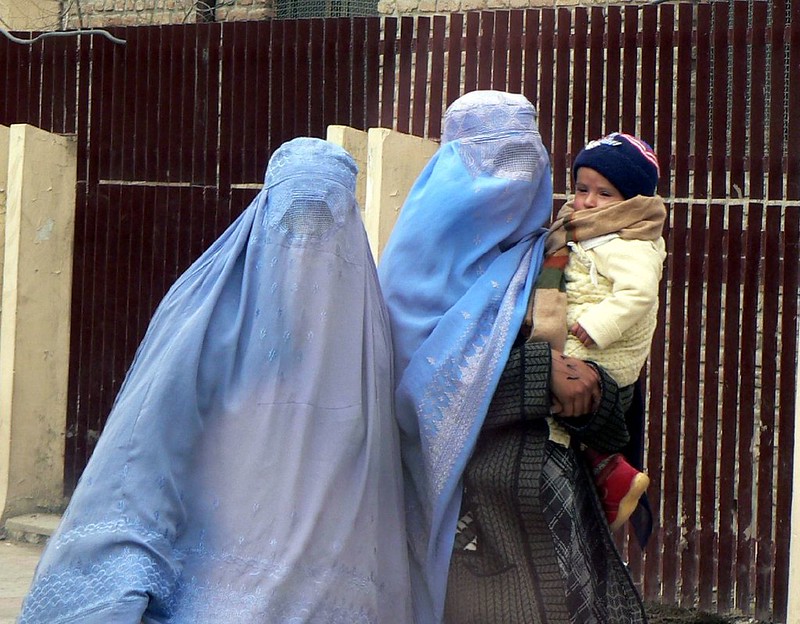 Gender inequality in the labor market manifests itself in many ways, not only regarding salary differences but also often involves women working longer hours in more informal sectors and engaging in higher levels of unpaid work. Despite not being one of the most underperforming Latin American states addressing the gender pay gap, Ecuador was ranked 89th out of 186 countries for gender inequality by the Human Development Index in 2012. This highlights that there is still work to be done to improve opportunities and benefits afforded to women in the workplace.
Gender inequality in the labor market manifests itself in many ways, not only regarding salary differences but also often involves women working longer hours in more informal sectors and engaging in higher levels of unpaid work. Despite not being one of the most underperforming Latin American states addressing the gender pay gap, Ecuador was ranked 89th out of 186 countries for gender inequality by the Human Development Index in 2012. This highlights that there is still work to be done to improve opportunities and benefits afforded to women in the workplace.
The Gender Wage Gap
In Ecuador, female workers earn between 13-26% less than men, with women in rural parts of the country estimated to work around 23 hours longer a week than their male counterparts. Women are also more commonly involved in “vulnerable” employment, working without formal arrangements or protections. They are, therefore, reliant on the economy doing well to stay in their job and are more likely to end up in poverty. Since the ’90s, the proportion of women employed in such employment in Ecuador has increased to 61.1%, compared to 43.5% of men, higher than the Latin American average.
Additionally, there is an invisible side to this gender wage disparity. According to data from the Household Satellite Account, “in 2014, unpaid work performed by women in Ecuador represented 15% of GDP.” Thus, the gender wage gap in Ecuador is much more than just differences in earnings; it is the quality of the work and conditions available to women. These gendered differences within the labor market intersect with racial and ethnic discrimination, making life especially difficult for minority women.
Ethnic Wage Gap
Ecuador’s population is diverse, with 1.1 million indigenous citizens from 14 nationalities. Throughout its history, similar to other countries with large Indigenous populations, these groups have suffered marginalization and discrimination. This has significantly impacted the relative prosperity and quality of life of indigenous people. In Ecuador, ethnic wage gaps are considerably higher than gender ones, with Indigenous citizens receiving only 33% of nonindigenous workers’ salaries.
Regarding opportunities, Indigenous people are two to three times less likely to be in stable, specialized careers in countries like Ecuador, where large Indigenous communities live in urban areas. When the gender pay gap intersects with these profound ethnic ones, this inequality becomes even more pronounced, especially for Indigenous women. These groups not only suffer from gender wage gaps but are put at an even more significant disadvantage in comparison to their nonindigenous female counterparts due to racial inequalities. Also, many Indigenous women live in rural areas of Ecuador, meaning they are also affected by the differences in rural and urban working opportunities and conditions.
Addressing Gender and Ethnic Wage Gaps in Ecuador
The Ecuadorian Constitution has attempted to address gender equality, committing itself to eliminating discrimination against women and creating a National Council of Women (CONAMU) focusing on policy directly related to women’s issues. Legislation such as the Law for Equal Pay between Women and Men has obliged employees to pay equal wages to male and female workers in the same jobs. Similarly, the Law to Promote the Violet Economy has expanded on this to promote female participation in sectors where they are often underrepresented.
The government passed an additional gender parity law in 2020, setting quotas to encourage increased female participation in election candidate lists and address the gender imbalance within the government. In 2021, this quota was set at 15% and increased to 30% in 2023. The government hopes that gender parity for electoral candidates will be reached by 2025. These diversity requirements have shown promising progress thus far, with women making up 46.9% of the candidates in the February 2024 subnational elections.
The United Nations (U.N.) has also made significant progress in expanding education provision for women and girls and encouraging female participation in elections. U.N. Women have worked alongside the United Nations Office For Project Services (UNOPS) to develop initiatives to help “national and local administrations incorporate a gender perspective” in the public sector.
This will ensure that the specific needs of women and girls are being addressed across different government sectors to bring Ecuador closer to meeting the U.N. Sustainable Development Goals. The organization has also promoted monetizing unpaid care responsibilities to recognize the additional labor women carry. If this proposal were to come to fruition, it would have significant benefits for Ecuadorian women, who in 2012 carried out around 40 hours of unpaid domestic work a week on top of other work commitments.
Final Remark on Wage Gaps in Ecuador
Despite Ecuador making great strides in improving the gender wage gap, not much is being done to tackle the profound ethnic wage gap that is disadvantageous and limiting ethnic minorities (especially Indigenous people). To ensure that all women earn a fair wage for their work and are valued as much as their male counterparts, addressing this ethnic pay gap alongside gender is crucial. Otherwise, indigenous women and those from other ethnic minorities will be left behind.
– Ciara Howard
Ciara is based in Brighton, UK and focuses on Good News and Global Health for The Borgen Project.
Photo: Pixabay



 In the southeast African nation of Mozambique,
In the southeast African nation of Mozambique, 

 The Taliban, an Islamic fundamentalist group, returned to power in
The Taliban, an Islamic fundamentalist group, returned to power in 

